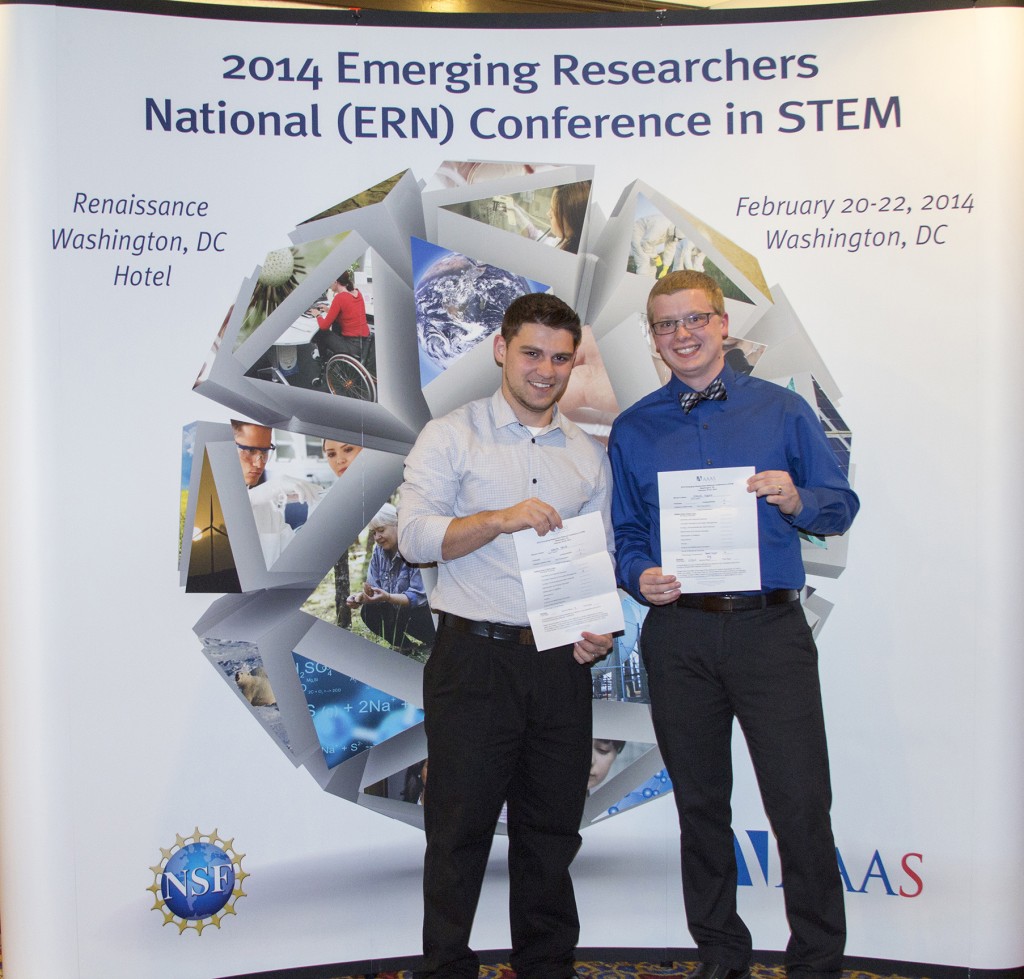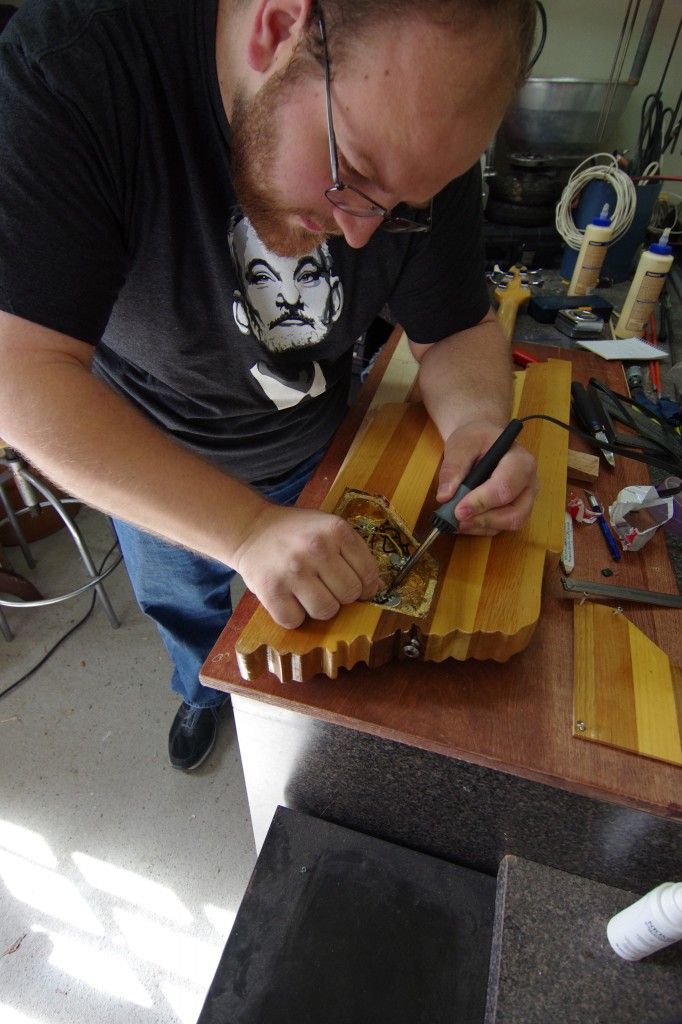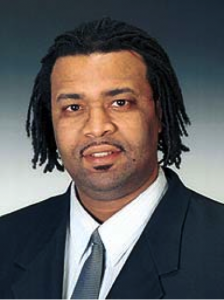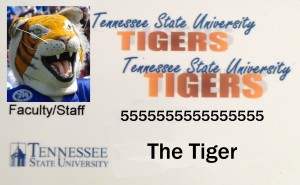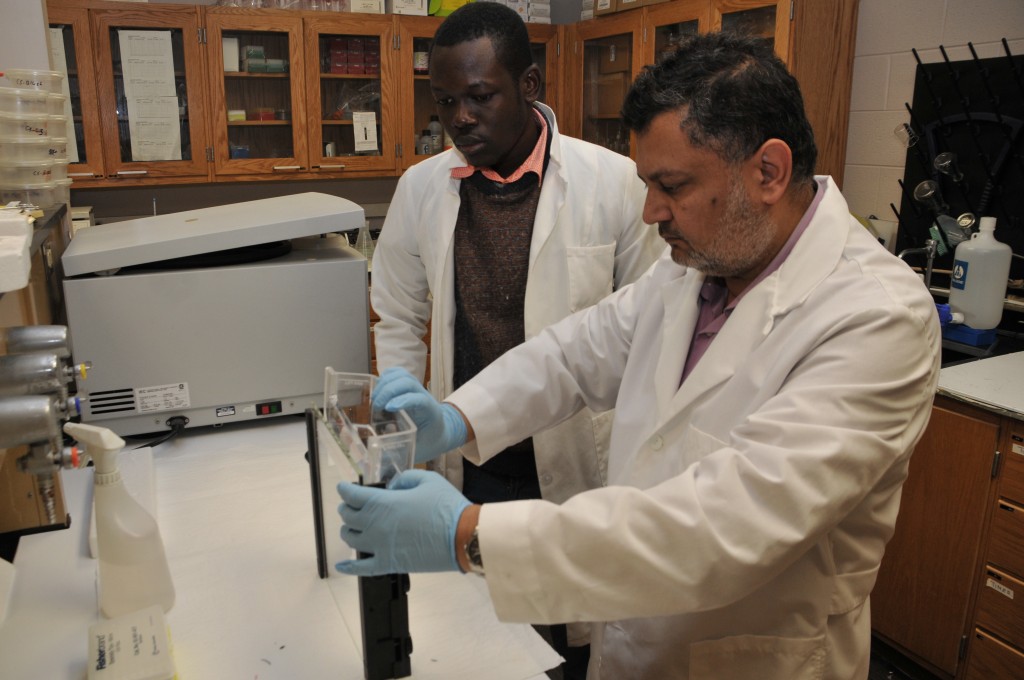
NASHVILLE, Tenn. (TSU News Service) – Coming on the heels of a soon-to-be dedicated multi-million dollar, state-of-the-art biotechnology center, agricultural research, extension and teaching at Tennessee State University have received a major boost with new funding from the federal government.
On Wednesday, Feb. 26, the University received a $2.6 million grant from the U.S. Department of Agriculture to support capacity-building endeavors.
The amount was part of 76 grants totaling $35 million awarded to 21 Historically Black Colleges and Universities or 1890 institutions to support research, teaching and extension activities through the USDA’s National Institute of Food and Agriculture program.
This achievement for TSU is the result of the success of six grant proposals submitted by faculty members or project directors and their collaborators in the College of Agriculture, Human and Natural Sciences, in addition to funding received for NIFA programs.
In the last four year, TSU has been one of the leading 1890 grantees, usually ranking in the top three spots. This year is no different, with University officials and students expressing their excitement about the institution’s success rate.
“We are quite pleased with the success of our faculty in garnering these USDA funds to build our Ag program,” said Dr. Chandra Reddy, dean of CAHNS. “These funds help to build capacity in new areas of agricultural research, teaching and outreach, as well as help in remodeling and building research facilities.”
Alison Leathers, a graduate student in Agricultural Education, Leadership and Extension from Preston, Minn., described the new funding along with the upcoming biotechnology center as “positives” that will enhance learning in new areas of research and awareness.
“I think the new money and building will certainly help to expand the amount of knowledge and expertise we have in the college by having more labs and more equipment that will help my fellow students and me,” Leathers said.
In announcing the grants Wednesday, Agriculture Secretary Tom Vilsack said the goal was to build on efforts that foster strong partnerships with the 1890 community, ensure equal access to USDA programs and services, and support educational opportunities for the next generation of farmers and ranchers.
“For nearly 125 years, the 1890 land-grant institutions have played a vital role in ensuring access to higher education and opportunity for underserved communities,” said Secretary Vilsack. “These competitively-awarded grants support high quality research, teaching and Extension activities and support the continued leadership of 1890 institutions in the fields of agriculture, the environment and public health.”
Faculty members (or project directors) who led the proposal submissions that resulted in the research, teaching and Extension grant awards, and their research focus are:
- Dr. Karla Addesso, assistant professor of Chemical Ecology – Sustainable agriculture – $299,751 (Research)
- Dr. Dafeng Hui, assistant professor of Biological Sciences – Bio-energy/biofuel and natural resources; Global climate change – $299,874 (Research)
- Dr. Fur-Chi Chen, associate professor of Food Science – Food Safety – $299,999 (Research)
- Dr. George Smith, assistant professor of Landscape Architecture – Water quality – $249,797 (Extension)
- Dr. Janice Emerson, associate professor and director of the Center for Prevention Research – Childhood Obesity – $248,886 (Extension)
- Dr. Ahmad Aziz, associate professor of Agricultural and Environmental Sciences – Bio-energy/biofuel and natural resources – $150,000 (Teaching)
Additionally, TSU received about $1.1 million NIFA award through the 1890 Facilities Grant Program, with Dr. Reddy as the PI. The fund will be used to remodel the Ferrell Westbrook Building with new laboratories for recently hired agricultural faculty.
Department of Media Relations
Tennessee State University
3500 John Merritt Boulevard
Nashville, Tennessee 37209
615.963.5331
About Tennessee State University
With nearly 9,000 students, Tennessee State University is Nashville’s only public university, and is a comprehensive, urban, co-educational, land-grant university offering 38 undergraduate, 22 graduate and seven doctoral programs. TSU has earned a top 20 ranking for Historically Black Colleges and Universities according to U.S. News and World Report, and rated as one of the top universities in the country by Washington Monthly for social mobility, research and community service. Founded in 1912, Tennessee State University celebrated 100 years in Nashville during 2012. Visit the University online at tnstate.edu.
